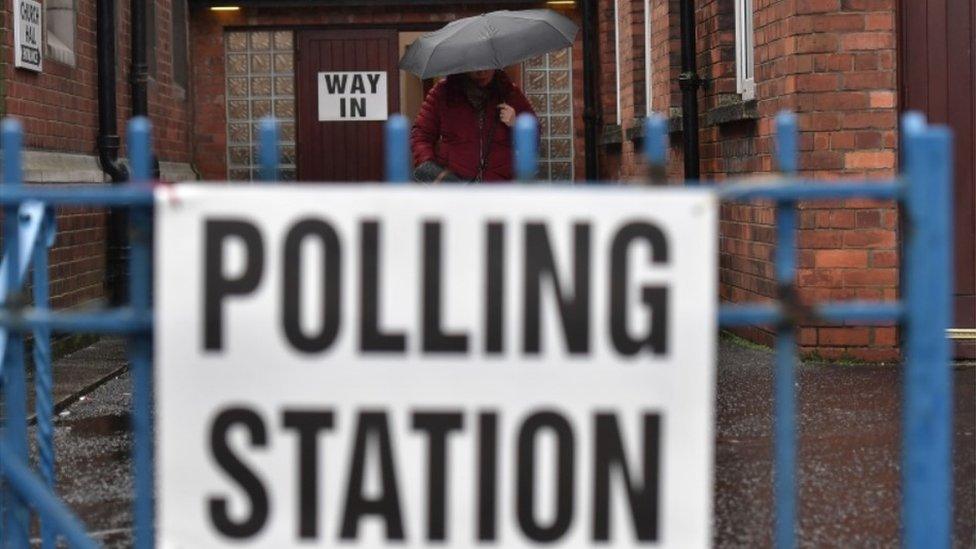Who will make their mark at the Northern Ireland council elections?
- Published
BBC News NI’s Jayne McCormack outlines a few reasons why your vote still matters
It has been a Northern Ireland local election campaign like no other.
Played out against a backdrop of the King's Coronation, two US presidential visits and a Good Friday Agreement anniversary stretched over a fortnight.
Not mentioning the daily drip of doom-and-gloom budget briefings with their predictions of eye-watering cuts.
Elsewhere, 807 council candidates have been busy on the doorsteps hoping to secure one of the 462 council seats up for grabs.
It has been a lacklustre campaign even by council election standards, with few memorable moments, not even a good old-fashioned Twitter spat.
So much so that all the parties are braced for a low voter turnout, with some predicting we may not even reach the dizzy heights of 52% from 2019.
That could play well for Sinn Féin.
Oven-ready campaign
Republicans are more energised than most to get to the polls this time.
The first republican first minister, Michelle O'Neill, being blocked from taking up her post by the DUP is sure to mobilise the green vote.
It has been an oven-ready campaign for Sinn Féin, pre-cooked by the DUP.
Hence the locked out would-be first minister is staring down from almost every lamppost with the message ready to work for all - if only she was allowed.
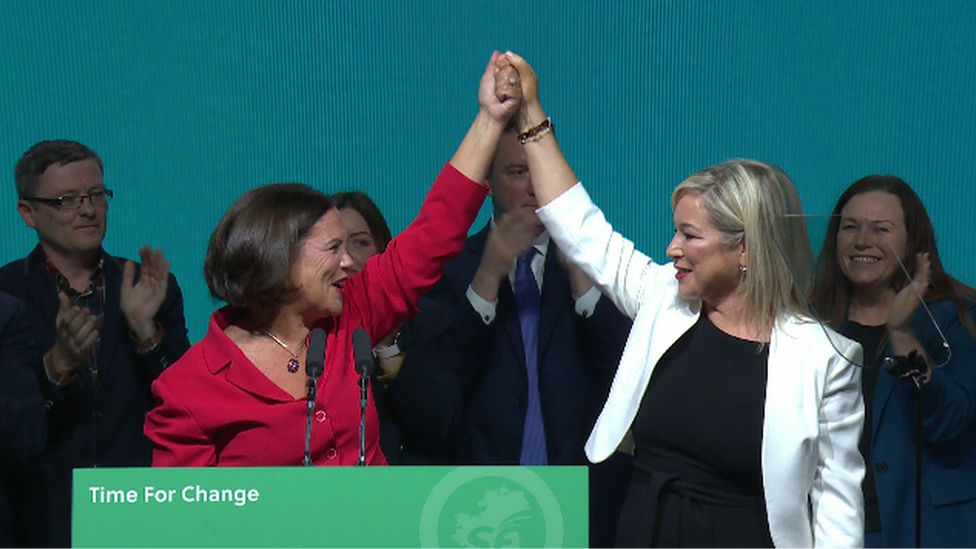
Sinn Féin have had a good campaign and republicans are more energised than ever before
It has been an easy campaign for Sinn Féin to run and the party is likely to make gains after a slight drop in support in 2019 resulted in no loss of seats.
The extra seats could come in Belfast, Derry City and Strabane and Newry Mourne and Down councils.
DUP looking to save seats
The DUP is fighting a rear-guard action to retain its place as the largest party on local councils.
It holds 122 seats - 17 more than Sinn Féin.
Running 20 fewer candidates than in 2019, the DUP's priority is to shore up its support - saving seats rather than snatching any new ones.
Recent polls suggest support for its Stormont boycott is rock solid among the majority of unionist voters.
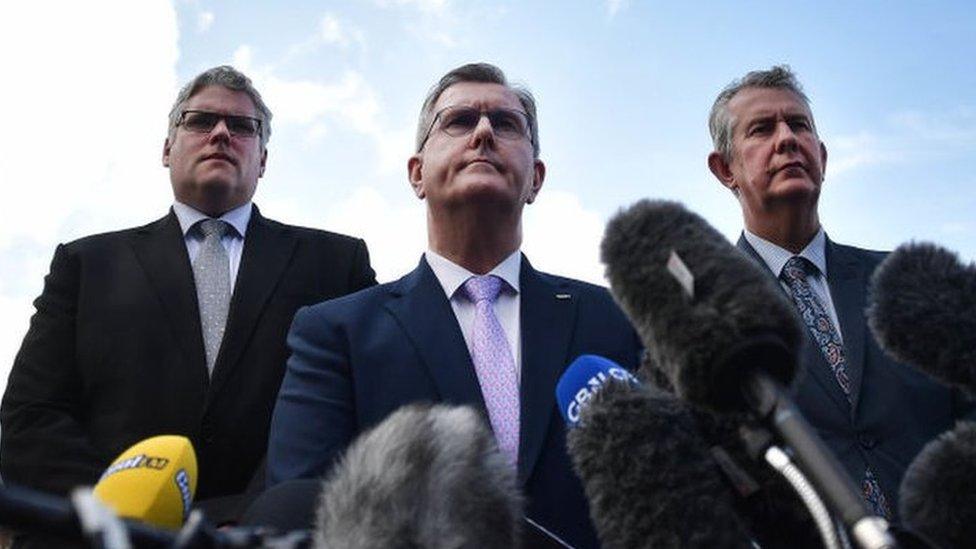
The DUP is set to save not snatch seats at the council elections
Any talk of a DUP climb down post-election, as predicted by its opponents, has been rubbished by the party leader.
But Sir Jeffrey Donaldson has a harder message to sell than he did in last year's Northern Ireland Assembly election.
Scrapping the protocol was a clear cut, easily understood message - fixing the Windsor Framework is less so.
Not knowing what that fix might look like is a big worry for unionist voters.
That lack of clarity may leave some DUP voters too disillusioned to vote.
While other DUP supporters who are frustrated by the party's Stormont boycott in the face of mounting budget pressures may also opt to stay at home.
The other threat to the DUP comes from former party councillors who are seeking to take seats in Derry and Strabane and Causeway Coast and Glens.
But the biggest challenge facing Sir Jeffrey is securing transfers from the other unionist parties to get his candidates over the line.
A splintered unionist vote cost the DUP seats in the last assembly and council elections and may do so again this time.
However, the party is in a stronger place now, with its internal battles firmly in the rear-view mirror.
It will also hope to claw back votes lost to the TUV after that party failed to gain any extra seats from its highest-ever assembly vote last year.
Alliance eye modest increase
Like Sinn Féin, the Alliance Party is hoping to cash in on the frustration generated by the DUP's Stormont boycott.
It has also framed its campaign around wanting to work for all if only it was allowed to.
The party was the big winner in 2019, securing 21 extra seats, and this time it's fielding its largest number of candidates - a total of 110 fighting for seats in 78 of the 80 electoral areas.
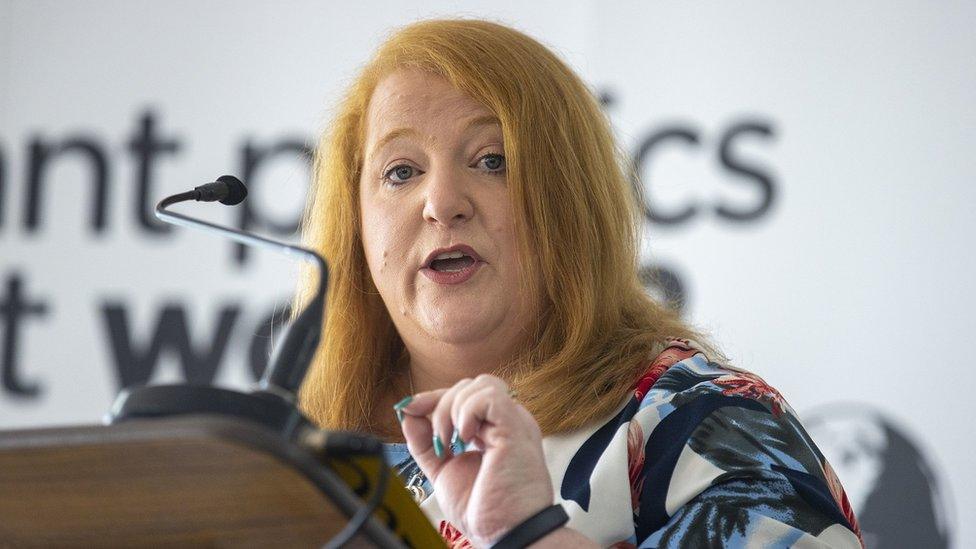
Naomi Long's Alliance Party has also framed its campaign about wanting to get back into Stormont
Managing expectations is the biggest challenge facing the party.
As one stalwart put it: "Don't expect us to more than double our seats, as we did in the assembly election last year."
He predicted a more modest increase of between 10 and 15 seats.
Those seats could come in Belfast, Lisburn and Castlereagh and Ards and North Down.
Almost 80% of the Alliance power base is in the east and so it's no surprise the party leadership has spent more time canvassing in the west.
Ulster Unionists braced for bruising day
Another good polling day for Alliance could see it overtake the Ulster Unionists as the third largest party across the 11 councils.
The party that dominated almost every council chamber in the past is braced for a bruising election if the polls are right.
The Ulster Unionists were the largest losers in 2019 shedding 13 seats.
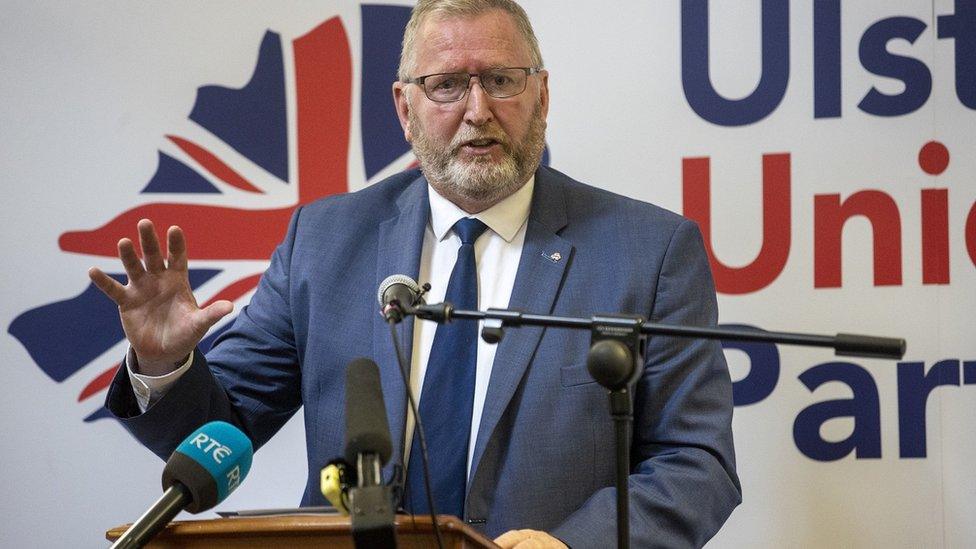
Ulster Unionist leader Doug Beattie had predicted his party would shrink before it would grow
Despite the more liberal Beattie brand of unionism, the party continues to lose votes to Alliance.
However, the party may be able to cash in on the big increase in Robin Swann's personal vote in Mid and East Antrim and pick up an extra seat there.
Party leader Doug Beattie once predicted his party would shrink before it would grow and that trend is likely to continue.
SDLP facing a struggle
The SDLP is also braced for more shrinkage to go along with the seven council seats it lost in the last election and four seats it lost at Stormont.
It is likely to pay the price for the DUP's Stormont boycott as more nationalist voters, frustrated Michelle O'Neill has been blocked from becoming first minister, turn to Sinn Féin.
Retaining all its 59 seats will be a big ask.
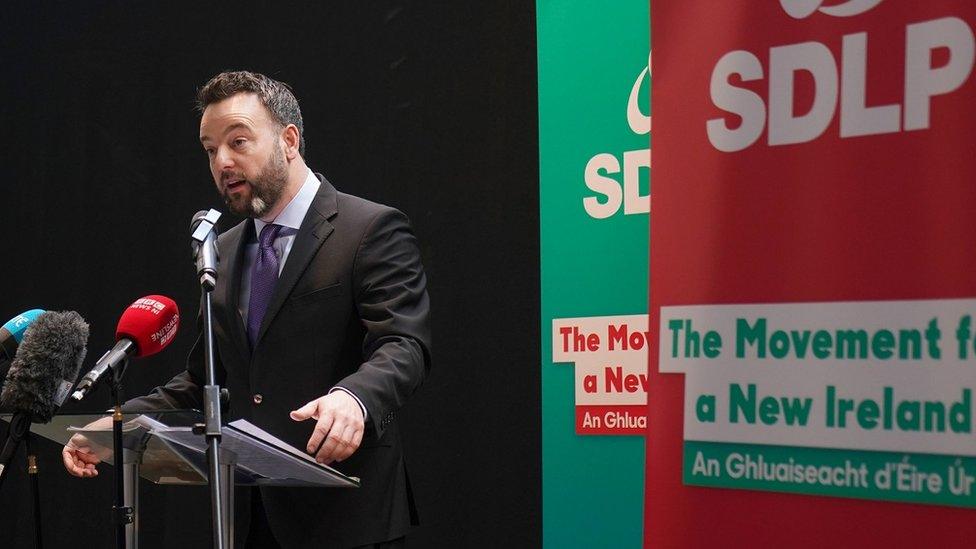
Colum Eastwood's SDLP has lost its biggest vote-getter in Belfast, Paul McCusker, who is standing as an independent
The party has already lost its biggest Belfast vote-getter - Paul McCusker.
He quit the party and is standing as an independent. Given his personal popularity, he is likely to retain his seat.
What about everyone else?
Bolstered by last year's record assembly vote, the TUV is aiming to reclaim the seven council seats it lost in 2019.
Though it increased its vote by 5% last year, securing 65,000 votes, it failed to win any extra assembly seats.
Failing to secure transfers proved costly but, with lower quotas and more seats in a council election, that hurdle may be easier to overcome.
People Before Profit (PBP) and the Green Party are both fighting to bank the gains they made in 2019, when they each won four extra seats.
They both benefited from voter frustration during the last Stormont shutdown but may struggle to tap into the same discontent this time.
Green leader Mal O'Hara is facing a battle to retain his seat in Belfast and, if he fails, he will become the second Greens leader to be sacked by the electorate in a year, after Claire Bailey lost her seat in the assembly election.
Pro-life republican party Aontú is hoping to retain its two council seats in Derry and Mid Ulster, and will be relying heavily on transfers to maintain its only political platform in Northern Ireland.
One prediction we can be sure of: the count will produce more colour and drama than the campaign.
Related topics
- Published15 May 2023
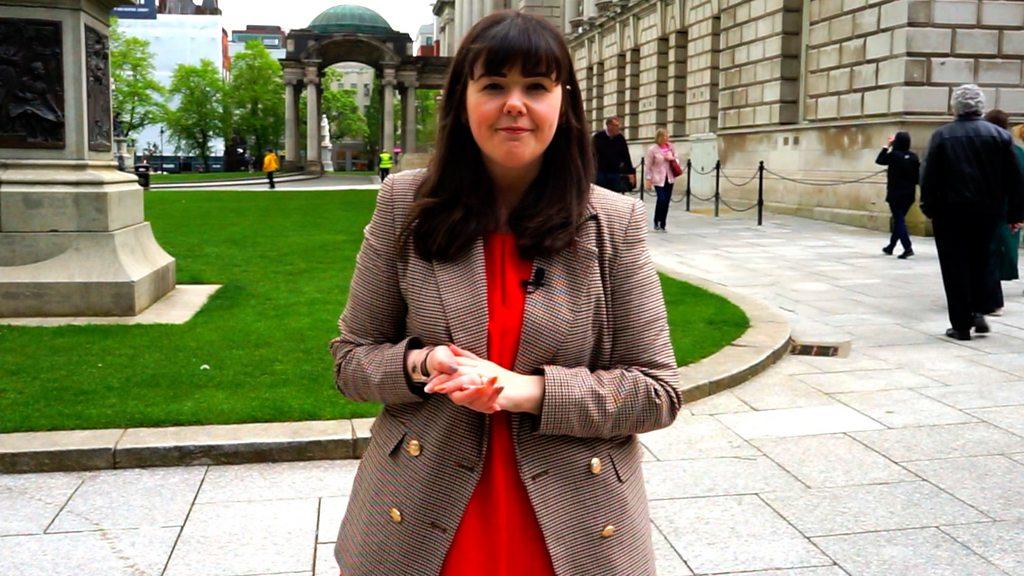
- Published2 February 2024

- Published27 April 2023
